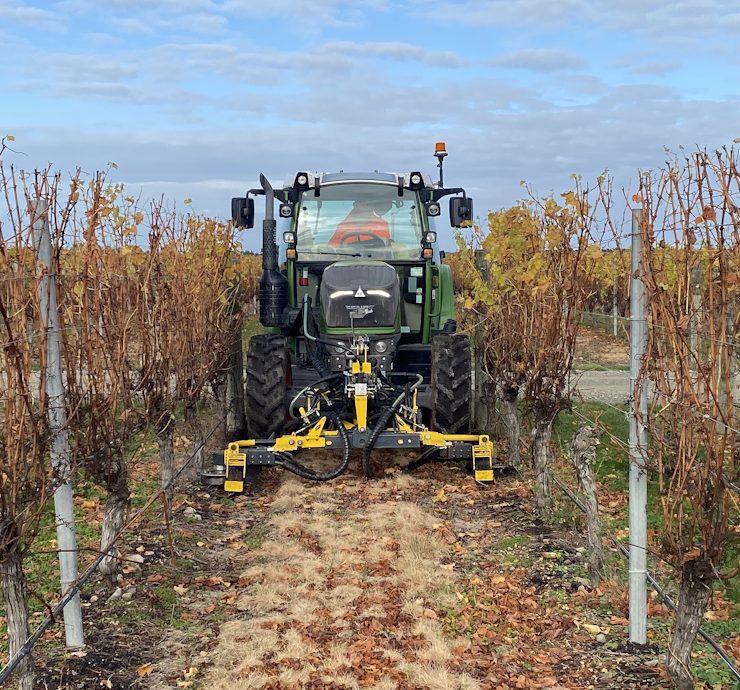The Issue:
Climate change, pollution, decreasing biodiversity – the world’s ecosystems are in trouble. In the United States, Arizona, California and Nevada have agreed to take less water from the Colorado River to prevent water levels falling perilously low.
Studies in Western Europe (including the British Isles) suggest 14% of bee species are in decline and 9% are threatened with extinction; for butterflies the numbers are 19% in decline and 9% at threat of extinction.
In New Zealand, more than 4000 of our endemic and native species are at risk of extinction.
How can we continue to grow the food we need, without further threatening our natural ecosystems. What changes are necessary to ensure our food and fibre production systems are environmentally sustainable?

What we're doing
Trial to slash herbicide use
A project investigating precision weeding in vineyards could prevent thousands of litres of herbicide use – and save thousands of cubic metres of water – across New Zealand’s viticulture and horticulture industries.
Six New Zealand vineyards have partnered with Lincoln Agritech and the Ministry for Primary Industries’ (MPI’s) Sustainable Food and Fibre Futures (SFF Futures) fund to trial high-pressure water weeding (also known as waterjet weeding).
Technology saves “lakes” of water
New water-saving technology is helping American farmers use up to 20% less water in irrigating their crops without loss of yield – thanks to research originating at Lincoln Agritech.
Researchers developed a ground-penetrating radar moisture sensor that can be mounted on a centre-pivot irrigator and take hundreds of readings per field, leading to much more precise irrigation.


